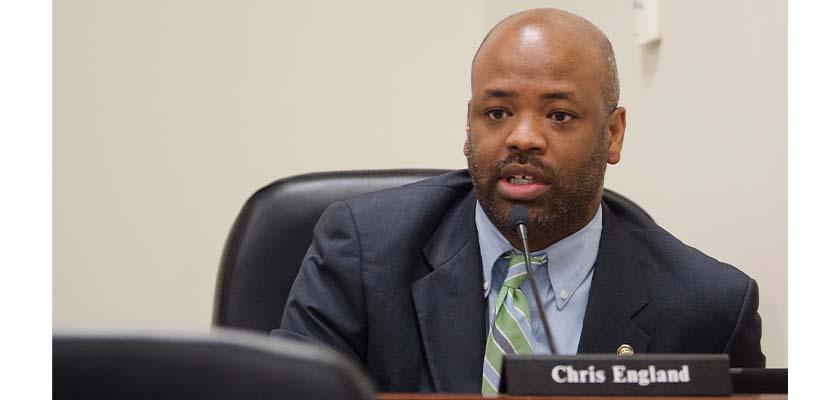Alabama House Democrats are giving their evaluation on the good, bad and ugly of the 2022 regular session.
The Alabama Legislature ended on Thursday evening with only minutes left before midnight.
The three-month affair had a tremendous amount of legislation coming through, much of which was passed despite House and Senate Democrat objections.
State Rep. Chris England (D- Tuscaloosa) gave his assessment of the session at an Alabama House Democratic Caucus meeting.
“As I reflect on all the events from the past legislative session, it reminds me of the old western movie, 'The Good, the Bad, and the Ugly,'” England said.
“… We saw some historic things happen, but we also saw our opposition pass legislation that did things like suppress voting and many other things that are quite ugly.”
England praised two bills that are awaiting the governor’s signature, which made up the “good’ in England’s opinion.
Legislation put forward by State Rep. Juandalynn Givan (D-Birmingham), which came in response to the alleged police misconduct in Brookside, was first on England’s list.
According to Givan, the Brookside Police Department (BPD) has been accused of setting up speed traps, over-policing, malpractice, corruption, fabricating charges, harassment, and illegally changing jurisdictional signage to increase ticketing capabilities. In February, over 150 people showed up to a public town hall hosted by Givan to detail their experiences with the BPD.
Givan’s bill makes it illegal to alter jurisdictional boundaries knowingly. The penalty for violating the law would be a class A misdemeanor.
“One thing that we did accomplish this session with our House Democratic Caucus is create some police accountability,” England said. "I believe we all saw the story of Brookside and the policing for profit that got out of control and victimized many innocent citizens. And I’m proud to say that our caucus, led by Rep. Juandalynn Givan, took the lead on that issue, brought more light to it, and helped pass legislation that we would hope stops this policing for profit in the future.”
England also praised House Bill 230 by State Rep. Rolanda Hollis (D-Birmingham), which created restrictions for shackling pregnant or postpartum inmates in jail or prisons.
“Passing this legislation is a humane and good thing, and it should have happened a long time ago,” England said
The “bad,” as defined by England, came in from the Republicans’ supposed unwillingness to engage in criminal justice reform.
“To me, the bad part is that the [Republican] supermajority decided to spend $400 million on prisons using federal COVID relief funds,” England said. “They have since held up and stymied any serious efforts to reform our broken criminal justice system.
“I sponsored House Bill 57, which would have established new accountability for the pardons and parole process. But, inexplicably, our colleagues across the aisle felt it was much more important to allow people who had been previously denied a gun permit the ability to carry concealed weapons.”
The permitless carry legislation referenced by England was House Bill 272 (HB272) by Rep. Shane Stringer (R–Mobile). The bill removed the requirement for Alabamians to acquire a permit to carry a concealed pistol on their person or in their vehicle. The bill does not change who may own a weapon. The current legal prohibitions on gun ownership are still in place.
The “ugly,” as defined by England, came in the legislation that addressed sex-changing hormones and surgeries on minors and legislation that would make it easier to arrest and charge people suspected of potentially inciting a riot.
“The ugly popped up in all sorts of bills,” England said, “like the ones that blatantly discriminate against transgender youth or finding new creative ways to arrest and jail peaceful protestors based on conjecture.”
England referenced two bills dealing with transgender rights and practices subsequently signed into law by Gov. Kay Ivey.
HB322 by State Rep. Scott Stadthagen (R–Hartselle) will make schools compel people to use the restrooms and changing rooms that align with their biological sex.
Senate Bill 184, sponsored by State Sen. Shay Shelnutt (R-Trussville), will criminalize a doctor who prescribes a puberty blocker or hormone treatment to a person under the age of 19. Any doctor who violates the law could be charged with a Class C felony.
House Bill 2 (HB2), sponsored by Rep. Allen Treadaway (R-Morris), has been one of the most controversial bills of the legislative session.
The bill defines a riot as “the assemblage of five or more persons in conduct which creates an immediate danger of property or injury to persons".
Many criticized the bill for its ambiguous use of language, including the possibility that being charged with riot no longer requires that the assemblage be violent, but includes any gathering of five or more people that could potentially become violent.
To connect with the author of this story, or to comment, email craig.monger@1819news.com










